
Wound dressings help to minimize the risk of infection and protect a wound from bacteria. There are many different types of wound dressings, such as adhesive bandages, non-adhesive bandages, first aid supplies, and scar treatments. They can be categorized by their size, intended use, and the material they are made from.
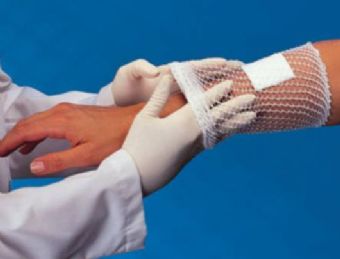
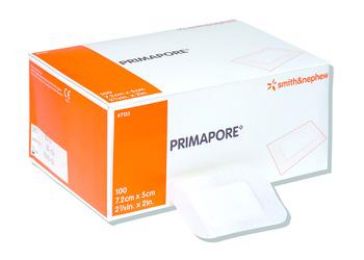
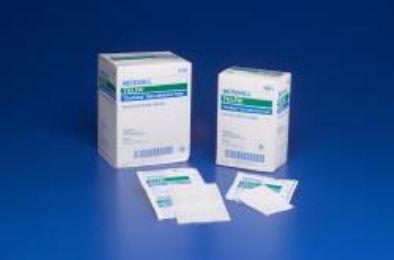
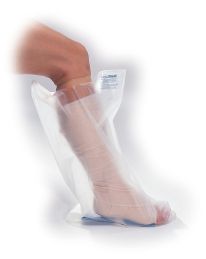
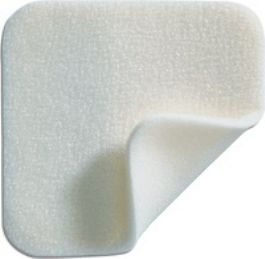
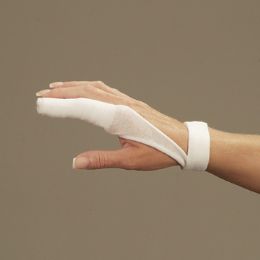
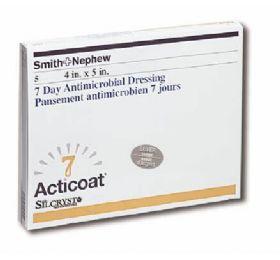
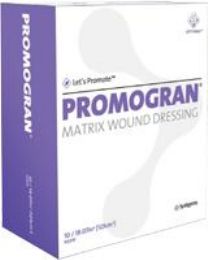
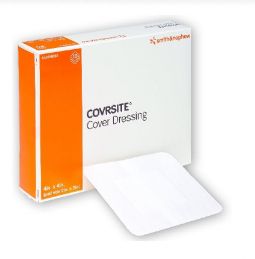
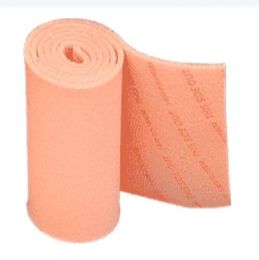
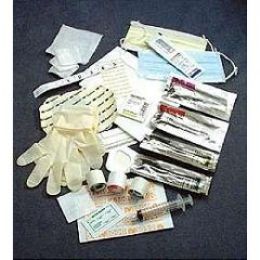












As the largest organ of the body, the skin acts as a barrier to protect the body from injury. There are many types of wounds that can damage the skin, which include lacerations, abrasions, rupture injuries, punctures, and penetrating wounds. Many wounds are superficial requiring local first aid treatment, such as cleansing and dressing. Some wounds are deeper and need medical attention to prevent infection, due to damage to underlying structures like muscle, bone, tendon, arteries, and nerves. The purpose of medical care for wounds is to preserve function and prevent complications. It is important to know tetanus immunization status to stay updated with a tetanus booster if necessary.
What is a Wound Dressing?
A wound dressing is a medical tool which is used to cover an injury, along with the gauze or sterile cotton that is applied to the wound. It is particularly important to help avoid infection by protecting a wound from debris that could carry bacteria. Before applying the dressing, it is critical to thoroughly clean the wound to help wash away any foreign matter that entered it when the injury took place.
The materials used when dressing a wound must be sterile. Usually they are packaged individually so they stay sterile before use. If a sterile dressing is not available, use the cleanest cloth to cover the wound until a sterile dressing can be obtained. To minimize the risk of infection, use an antibiotic cream or ointment in addition to the dressing. If using a wound dressing, such as cotton or gauze, it is important to keep it in place with a bandage which can be adhesive or non-adhesive. Follow first aid guidelines when dressing a wound. A medical professional may need to be consulted to assess the wound and decide what type of treatment and dressing is best.
What are Different Types of Adhesive Bandages?
Adhesive bandages were made as a way to protect small scrapes and cuts without the inconvenience and bulk of a full-sized bandage. Over time, product features have changed to provide specific treatment for smaller or larger injuries, specialized burn care, and injuries on limbs or joints. In order to prevent infection and speed healing, certain types of adhesive bandages are saturated with medicated ointment.
The 3 inch by 1 inch strip is the most familiar form of an adhesive bandage. This type is used for everyday minor injuries, and is most effective for small, shallow abrasions and cuts in areas where the bandage can lay flat. A butterfly-shaped bandage has been developed especially for flexing joints. Since knuckles are bent many times throughout the day, this type wraps around them so the bandage will not wrinkle, keeping the adhesive in place. To allow for finger wrapping, newer rectangular designs feature tapered ends. Sometimes, a typical bandage is too large or obtrusive for tiny wounds such as a hangnail or pimple. Therefore, miniature bandages are available for wounds located in awkward places where there may not be room for a rectangular strip.
Adhesive bandages are also available in larger sizes for wounds that cover more surface area. These bandages are mostly an absorbent pad, commonly used for abrasions, with a half-inch strip of adhesive around the edge. The thicker pad allows for more blood absorbency, and the shape effectively covers a larger area. Although not recommended for wrapping around a flexing joint, this bandage can cover an entire adult kneecap or shoulder, and stay in place as long as strenuous movement is avoided.
Adhesive bandages are normally made of latex, but the rise in latex allergies has caused the industry to develop alternatives. This has made latex-free plastic and fabric bandages popular. Most bandages are available in many shapes and sizes that are breathable, waterproof, sheer, and see-through. A large shift in the bandage industry is toward a thin neoprene bandage. It combines all of the advantages of the specialty plastics into one bandage.
Most bandages offer a medicated version in various shapes and sizes. The pads are made with antibiotic or antibacterial ointment to speed healing and prevent infection. Thin strips of silver nitrate woven throughout the pad are available in the more advanced bandages to help stop excessive bleeding. There are also specialty adhesive bandages available for certain wound care needs. For example, foodservice workers are required to wear a special bright blue bandage to be easily seen if they fall off. There are adhesive bandages made especially to treat burns. This type is filled with a medicated gel that helps cushion and cool the burn while it heals.
How do I Perform Wound Care?
Minor cuts and scrapes can be cared for by following some simple guidelines. First, wash the hands to help avoid infection and, if available, use disposable protective gloves. Minor cuts and scrapes normally stop bleeding on their own, but if not, apply gentle pressure with a sterile bandage or clean cloth. Elevating the wound also helps. To clean the wound, use clear water to rinse it out. Also, clean around the wound with soap and a washcloth, but keep the soap out of the wound since it can cause irritation. If debris is in the wound after washing, use tweezers that are cleaned with alcohol to remove the particles. See a doctor if debris still remains.
Next, apply a thin layer of an antibiotic ointment or cream to help keep the surface moist. These products help discourage infection, and enhance the natural healing process. Certain ingredients in some ointments can cause a mild rash in some people, so if a rash appears, stop using the ointment. Then, cover the wound with a bandage. Change the dressing at least once a day, or when the bandage gets wet or dirty. After the wound has healed enough to make the risk of infection unlikely, it can be uncovered since exposure to the air will speed healing.
Stitches will be needed if the wound is deep, gaping or jagged, and if it exposes fat or muscle. If unable to easily close the wound, see a doctor as soon as possible. Proper closure within a few hours can minimize scarring and reduce the risk of infection. If the wound is not healing, or if there is redness, drainage, increasing pain, warmth, or swelling, seek professional medical attention immediately. If the affected individual has not had a tetanus shot in the past 5 years, and the wound is dirty or deep, he or she may need a booster shot as soon as possible.
Rehabmart is pleased to offer a comprehensive selection of superior quality wound dressings from esteemed and respected vendors encompassing BSN Medical, McKesson Medical-Surgical, DeRoyal, Independence Medical, Chattanooga, Sage and Sun Holdings and Medline.
Hulet Smith, OT
Rehabmart Co-Founder & CEO
lb